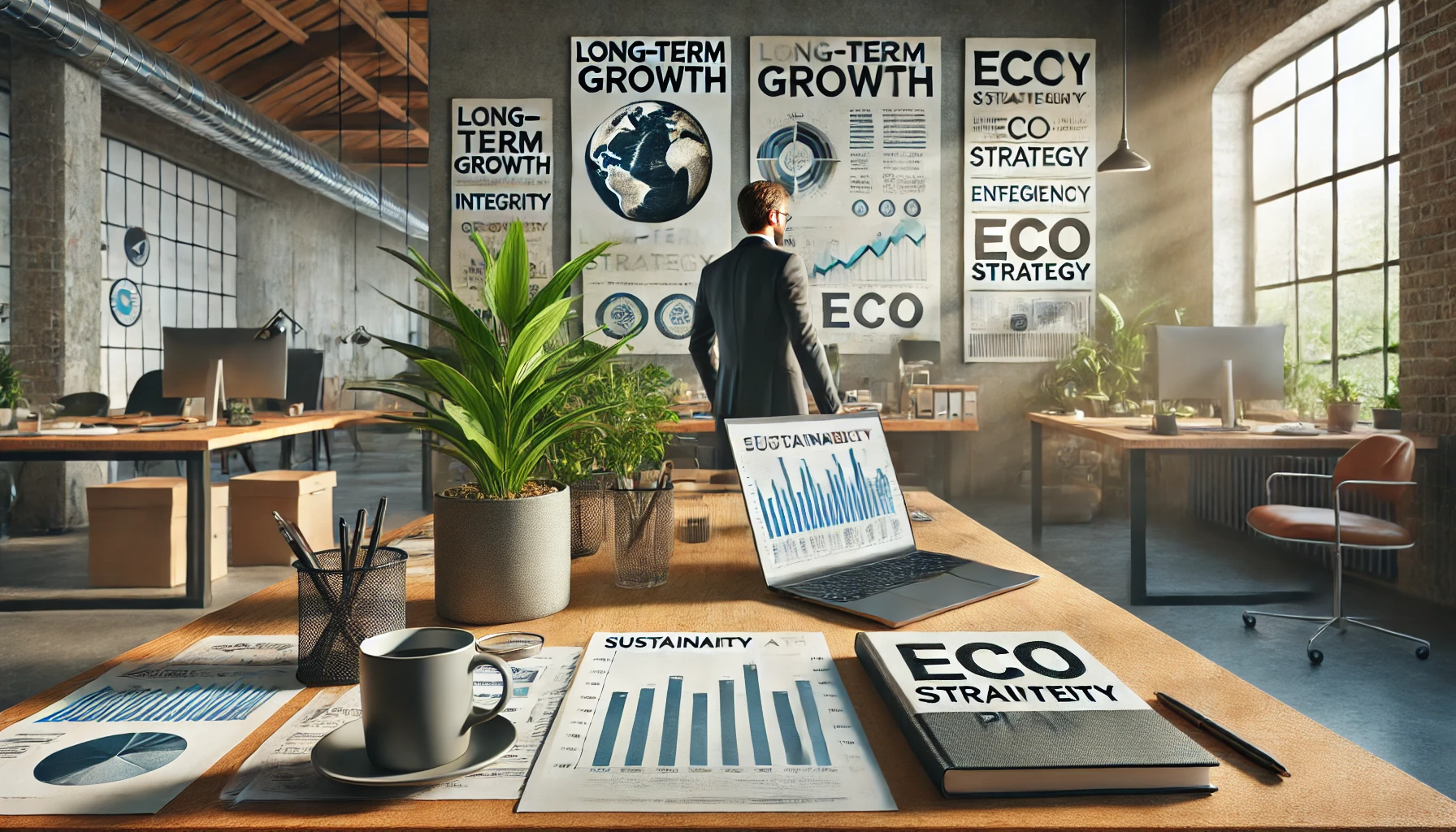Building a business is exciting—but building one that lasts? That’s the real goal. Sustainability in business doesn’t just mean being environmentally friendly (although that’s part of it). It means creating a company that can endure economic ups and downs, stay relevant to its audience, and grow with purpose over time.
In this article, we’ll explore what it truly takes to build a sustainable business—financially, operationally, and ethically.
What Is a Sustainable Business?
A sustainable business is one that:
- Delivers long-term value to customers and stakeholders
- Maintains financial health with smart spending and reliable income
- Minimizes harm and maximizes positive impact on people and the planet
- Adapts and evolves with market trends and consumer needs
- Takes care of its team, customers, and community
Whether you’re a solo entrepreneur or a growing brand, sustainability should be at the core of your business strategy.
1. Build on a Strong Foundation
Before focusing on growth, make sure your basics are solid.
Ask yourself:
- Do I truly understand my target audience?
- Is my product/service solving a real problem?
- Are my costs and pricing aligned for profit?
- Do I have clear goals for the next 1, 3, and 5 years?
Without clarity in these areas, your business might grow in the wrong direction—or not grow at all.
2. Focus on Long-Term Value (Not Just Quick Wins)
Short-term tactics like flash sales or viral content might bring a temporary spike, but they don’t guarantee sustainability.
Instead:
- Build trust through consistent service
- Develop high-quality products that last
- Create content that educates and adds value
- Invest in relationships with loyal customers
A long-term mindset helps you build a loyal base that returns again and again.
3. Manage Finances Carefully
One of the biggest threats to sustainability is poor financial management.
Tips to keep your business financially stable:
- Track your income and expenses every month
- Separate personal and business finances
- Build a 3–6 month emergency fund
- Avoid unnecessary debt
- Reinvest profits wisely
You don’t need to be an accountant—just develop financial discipline and keep your numbers organized.
4. Design for Adaptability
Markets change. Technology evolves. Customer needs shift. Your business should be flexible enough to respond.
How to stay adaptable:
- Stay informed on trends in your industry
- Regularly ask your audience for feedback
- Be open to changing your offer or model
- Test new ideas on a small scale before full rollout
The businesses that survive are those that evolve—without losing their core mission.
5. Care for Your Customers (and Listen to Them)
Happy customers are the fuel of a sustainable business.
Make it a habit to:
- Respond to questions and concerns quickly
- Personalize your interactions when possible
- Follow up after sales
- Request and act on feedback
- Deliver more than expected
Great service builds word-of-mouth and increases repeat business—both key to sustainability.
6. Streamline and Simplify Operations
Efficiency is key. If your systems are chaotic or time-consuming, they’ll eventually break.
Ways to streamline:
- Automate repetitive tasks (emails, invoicing, scheduling)
- Create SOPs (standard operating procedures) for tasks you repeat often
- Use tools that integrate (e.g. CRM + email + calendar)
- Delegate or outsource when it makes sense
A lean operation helps you scale without burning out.
7. Take Care of Yourself and Your Team
Your energy is one of your greatest assets. If you’re constantly exhausted or stressed, your business will suffer.
Prioritize:
- Rest and breaks
- Exercise and healthy habits
- Mental health support
- Boundaries between work and life
- Appreciation and well-being if you manage a team
A sustainable business starts with a sustainable you.
8. Make Ethical and Eco-Friendly Choices
More and more consumers support brands that align with their values.
Even small changes can make a big difference:
- Reduce packaging waste
- Partner with ethical suppliers
- Use sustainable materials when possible
- Be transparent about your values and impact
- Support causes that matter to your audience
Ethics and sustainability go hand-in-hand.
9. Diversify Your Income Streams
Depending on one source of income is risky. Diversifying adds security.
Examples:
- If you offer services → add a digital product
- If you sell products → offer subscriptions or consulting
- If you rely on one platform (like Instagram) → build an email list
Multiple revenue streams give your business flexibility in tough times.
10. Think Legacy, Not Just Profit
Ask yourself: what kind of business do I want to build for the long run?
It’s not just about making money—it’s about creating impact. That could mean:
- Inspiring your community
- Empowering others through your story
- Building generational wealth
- Leaving the world better than you found it
When your business is tied to a mission, it becomes more resilient—and more meaningful.
Final Thought: Build Slow, Build Strong
Sustainable businesses don’t happen overnight. They’re built one decision, one relationship, and one step at a time.
By focusing on value, efficiency, ethics, and care, you’ll not only grow—you’ll endure. And in the end, that’s what true success looks like.
